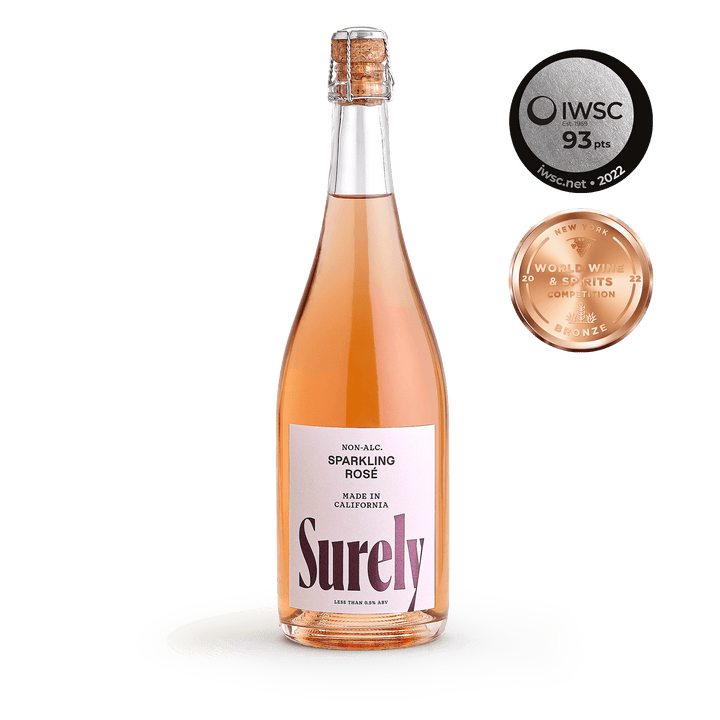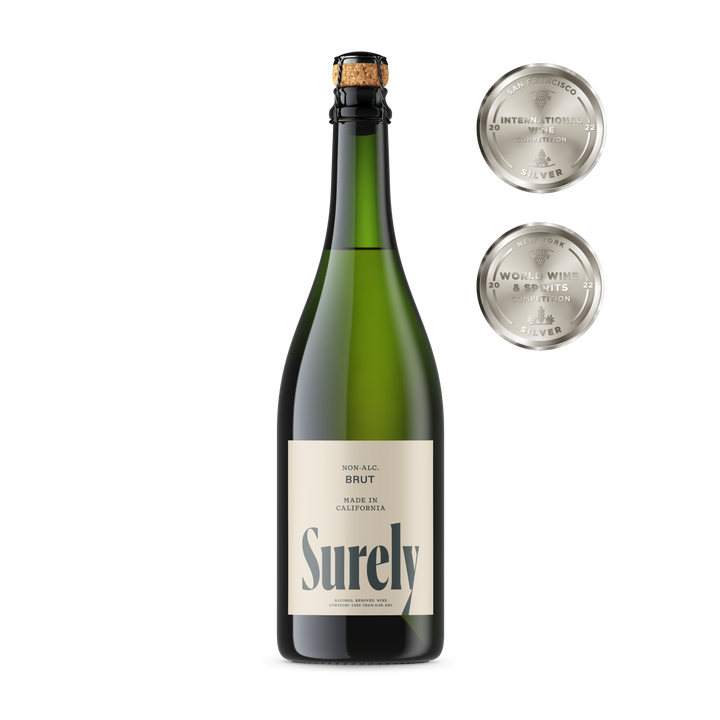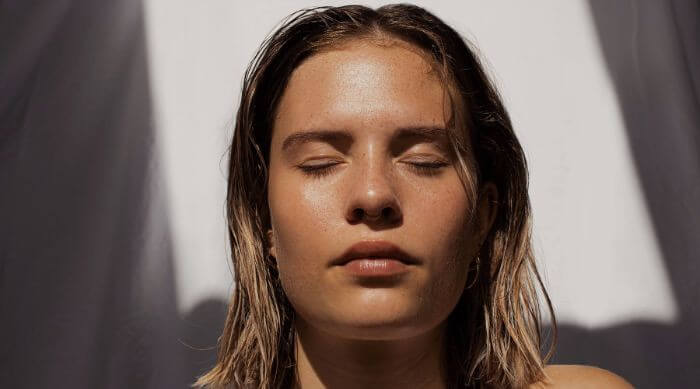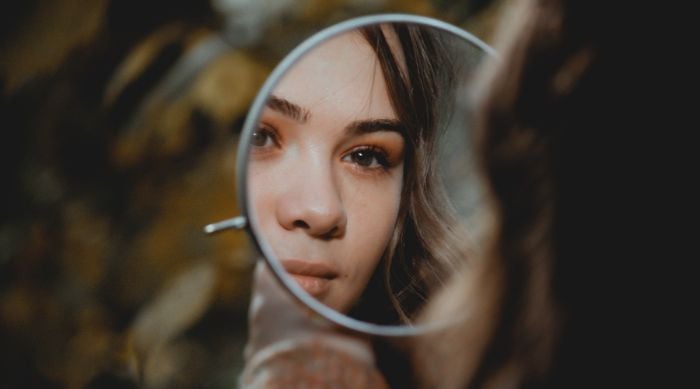While you may feel like you’ve had a glow-up after a few alcoholic drinks, alcohol is bad for your skin. If your goal is healthy, clear skin, you can add alcohol to the list of things to avoid, along with smoking, sun exposure, and sleep deprivation.
Too much alcohol is bad for your skin in the short and long term, especially if you’re already dealing with existing skin conditions. Let’s look at why alcohol’s effects show up on your skin and what you can do about it.
How Alcohol Impacts Skin
Alcohol impacts every body system, but your skin tends to show it more obviously. Dehydration is a big one, so we’ll start there.
Dehydration
Will alcohol make my skin dry? Alcohol will make your skin dry because of its dehydrating effects.
Alcohol has a diuretic effect that causes water loss and dehydration in the body. Dehydrated skin is dry, which can worsen flare-ups of psoriasis, atopic dermatitis, or eczema. Over time, dehydration can accelerate visible signs of aging, like fine lines and wrinkles.
Dark Circles
A night of drinking may get you to sleep faster, but it won’t be high-quality sleep. Heavy drinking can keep your body from cycling through the four stages of sleep, particularly REM sleep. That’s the stage responsible for memory retention and learning.
Poor sleep appears on your face through dark circles, bloating, and puffy eyes. Basically, you’ll look as tired as you feel.
Allergic Reactions
If you break out in hives when you drink, you could have an alcohol sensitivity. Alcohol causes a release of histamines in the body, the same thing that happens when you come across an allergy trigger.
Instead of itchy eyes and a runny nose, an alcohol allergy can show up as hives, skin irritation, and skin sensitivity. Drinking too much can also cause flare-ups of rosacea, a skin condition made worse by allergy triggers.
Flushing
An alcohol flush reaction is a form of alcohol intolerance that happens when your body isn’t able to metabolize alcohol correctly. It results in redness on the face, neck, and chest.
People who experience flushed skin when they drink may have a mutation of aldehyde dehydrogenase 2 (ALDH2), an enzyme that processes alcohol in the body. People of East Asian descent are more likely to inherit this gene mutation, but flushing can happen to anyone.
Cortisol Production
Drinking over time increases levels of cortisol in the body, which contributes to weight gain, inflammation, and skin dysfunction like breakouts and accelerated skin aging.
If you notice oilier, more acne-prone skin or puffiness when you’re stressed out, that could be a side effect of too much cortisol in the body. That’s the hormone responsible for stress levels.
Does alcohol age your skin? Alcohol does age your skin. On top of its dehydrating effects, it can increase inflammation and cortisol production and disrupt regular skin cell cycles responsible for skin health and elasticity.
Cellular Dysfunction
Alcohol’s effects go well below skin-deep and can actually slow down cellular turnover. Bad sleep can do it, too. This can affect everything from tissue healing to collagen production, two areas that are directly responsible for how your skin looks and feels.
Healthy cell cycles also support a strong immune system. When you drink, immune system cells can be thrown out of balance and put you at risk of chronic inflammation and an increased risk of infection.
Chronic Conditions & Cancers
Binge drinking over time can cause liver disease, which can show up on your face in the form of red or purple splotches. That’s because of alcohol’s effects on the blood vessels just underneath your skin.
Research shows that drinking too much can also increase your risk of a number of cancers, including skin cancer. Scientists think the reason could be a combination of things, including barriers to cell repair and how people behave when they drink.
You’re probably more likely to forget about reapplying sunscreen when you’re out in the sun having umbrella drinks.
How to Protect Your Skin While Drinking
What are some ways to keep your skin healthy if I drink alcohol? Some ways to keep your skin healthy if you drink alcohol include cutting back on your alcohol use, drinking plenty of water, and following a solid skin health routine.
Stay hydrated.
Counteract alcohol’s dehydrating effects and drink water before, during, and after you drink. Drink a glass of water in between your alcoholic beverages to slow yourself down when you’re out, too. It’s not a miracle hangover cure, but it could lessen those morning-after symptoms.
Eat a healthy diet.
Whole grains, lean proteins, healthy fats, and loads of fresh fruits and veggies are always a good idea, especially when you know you’ll be drinking. Any minimal health benefits of red wine don’t compare with the overwhelming benefits of not drinking at all.
Pamper your skin.
Get into a healthy skincare routine. Wear a daily moisturizer to combat dryness and slather on that sunscreen. Wear makeup that won’t clog your pores, and seek out dermatology products that offer some protection from alcohol’s toxins.
Drink in moderation.
The CDC defines moderate drinking as one standard-sized drink a day for women and two drinks per day for men. If you’re used to heavy pours with your glass of wine, you may need to watch your ounces. A standard-sized glass of wine is 5 ounces.
A moderate amount of alcohol from time to time is unlikely to cause lasting skin damage, but even one night of drinking can cause short-term effects like puffiness and bloating. Cut back on drinking to give your skin a chance to heal.
Adjust your drink of choice.
Liquors without too many additives, like vodka, gin, and clear tequila, are generally better for your skin than high-carb beers or sugary mixed drinks. When it comes to wine, seek out wines low in added sugars or options with lower ABVs.
Dealcoholized versions are the best non-alcoholic substitutes for your skin. Try one of the delicious alcohol alternatives out there, like Surely non-alcoholic wine.
Non-Alcoholic Sparkling Rosé

$24.99
Award-winning non-alcoholic California sparkling rosé with crisp, light notes of strawberry, peach & raspberry. Rosé all day without the hangover.TASTING NOTES: Flavors of soft strawberry, peach, and raspberry notes are balanced with a light acid for a full finish.FOOD PAIRINGS:… Read More
Treating Alcohol-Related Skin Issues
If you’re dealing with lasting skin damage or frequent flare-ups of existing skin conditions, there are a few ways to improve alcohol-related skin issues over time.
Wash your face.
Jumping into bed after a night out may sound awesome at the time, but you’re not doing your skin any favors. Use a gentle cleaner before you hit the hay and when you wake up in the morning to wash away impurities and reduce your risk of breakouts.
Clean your pillowcase.
Your pillowcase can be hiding a host of dirt and bacteria build up. Laying your face on a dirty pillowcase may be contributing to your breakouts. Clean your pillowcase every 2-3 days, and consider replacing your pillow every 1-2 years to keep your face clear through the night.
Get your rest.
If your skin has been looking tired, seek out extra sleep if you can. A better sleep routine is ideal rather than trying to catch up on sleep, but a solid nap will still do you good after a night out.
Eat well and move more.
When your body is healthy and active, your skin shows it. Eat a balanced diet and get regular exercise. Incorporate walks into your day if you don’t know where to start. Increase your citrus intake for antioxidants and vitamin C if your immune system is lagging.
Drink more water.
We know we keep coming at you about this, but dehydration is one of the biggest culprits behind dull, fatigued skin. Whether you’re in detox mode or taking a break, rehydration with plenty of water is the best way to improve your skin long-term.
Identify triggers.
An elimination diet can help you identify if your skin issues are alcohol-related. Cut out alcohol for two weeks and document any changes in your skin. Then, reintroduce alcohol and see if your symptoms reappear.
If you had a peanut allergy, you wouldn’t keep eating them just because you like them, right? The same goes for alcohol. Particularly if you have IBS, alcohol is a common trigger for digestive and other symptoms.
Thankfully, there are plenty of delicious non-alcoholic beverages to keep you satiated!
Your skin can bounce back with a healthy routine, but some conditions may require medical reinforcements. If you’ve done all the right things by your skin and you are still dealing with flare-ups, breakouts, or other concerns, call your dermatologist.
They can give you more individualized tips based on your health history or prescribe topical treatments to clear up skin concerns in the meantime.
Stop drinking.
Cutting all alcohol may be the right move if you’re dealing with lasting skin effects.
Will my skin improve if I stop drinking? Your skin will likely improve if you stop drinking. Within a week after you stop drinking, your dry skin may resolve due to improved hydration. Any skin conditions caused by alcohol affects should improve within about a month.
Non-Alcoholic Solutions for Healthy Skin
Alcohol and healthy, vibrant-looking skin just don’t mix. Honestly, alcohol and overall wellness don’t mesh all that well, either. If you’re curious about a sober lifestyle, Surely’s non-alcoholic wines are a great way to stay on track.
Love bubbles? Start with our non-alcoholic sparkling Brut. Take the show on the road with our canned bubbly reds. Enjoy better rest and better skin with Surely.
Non-Alcoholic Sparkling Brut

$24.99
Award-winning alcohol-removed bubbly white. Hints of apple, pear, honey and citrus notes. Better than champagne.TASTING NOTES: The vibrant combination of apple, pear, honey and citrus notes intertwined with a crisp backbone. The acid and sweet notes of the fruit pair… Read More
Sources
- Atopic Dermatitis and Water: Is There an Optimum Water Intake Level for Improving Atopic Skin?
- Does poor sleep quality affect skin aging?
- Alcohol intake and risk of rosacea in US women
- Asian flushing: genetic and sociocultural factors of alcoholism among East asians
- The Relationship between Alcohol Consumption and Cortisol Secretion in an Aging Cohort
- Alcohol, signaling, and ECM turnover
- Opposing effects of alcohol on the immune system
- Alcohol Intake and Risk of Incident Melanoma: A Pooled Analysis of Three Prospective Studies in the U.S


![What Happens When You Stop Drinking [Timeline + Benefits]](https://dropinblog.net/cdn-cgi/image/fit=scale-down,width=700/34240221/files/featured/what-happens-when-you-stop-drinking.jpg)

